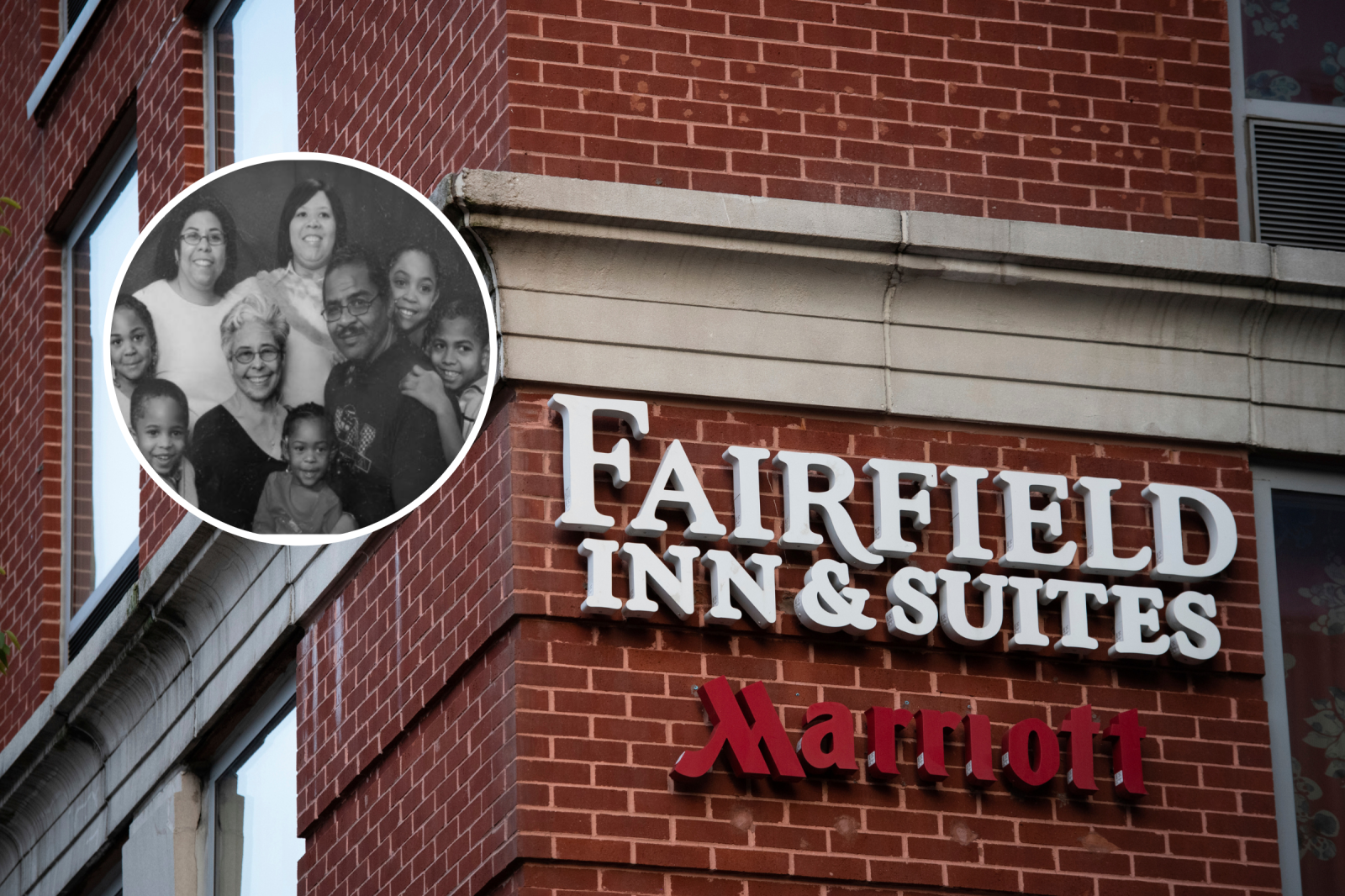Copyright ABC17News.com

By Nayeli Jaramillo-Plata, Amanda Musa, CNN (CNN) — Alejandra doesn’t leave her home unless she really needs to. She skips doctor’s appointments and church to remain undetected. And if she is detained by immigration enforcement officials, her 13-year-old son is prepared with a list of people to call and his social security number memorized. “I cannot be separated from my kids,” said the 30-year-old undocumented mother of four children who were born in the United States. “I just can’t risk it.” CNN agreed to only use Alejandra’s first name to protect her identity out of respect for her safety concerns due to her immigration status. The idea that her family might be ripped apart only crossed her mind recently, she said, when President Donald Trump’s nationwide immigration crackdown penetrated the humble, quiet Nebraska community she calls home. In June, a meatpacking plant in Omaha was raided by Immigration and Customs Enforcement agents in what the agency described as the largest worksite operation in the state since the start of the Trump administration. Alejandra says several family friends and church acquaintances were among the dozens of people detained. As that event continues to generate aftershocks, a new ICE detention center, dubbed the “Cornhusker Clink,” is opening in western Nebraska soon and is expected to hold up to 300 adults, a spokesperson for Nebraska’s Republican Gov. Jim Pillen told CNN Thursday. The facility will join other new ICE detention centers in Republican-led states, including “Alligator Alcatraz” in Florida, “Louisiana Lockup” or “Camp 57” in Louisiana, and “Speedway Slammer” in Indiana. These new ICE facilities “are significantly expanding detention space to house the worst of the worst illegal aliens,” a Department of Homeland Security spokesperson told CNN Wednesday. “We look forward to the opening of this new partnership with Nebraska very soon.” Pillen’s office has estimated the contract with DHS will bring around $14 million annually to the state. Laura Strimple, a spokesperson for the governor’s office described it as “the latest action undertaken by Gov. Pillen to stand with President Trump and protect Americans from criminal illegal aliens. The facility will not only serve Nebraska, but also other states in the region.” Sitting hundreds of miles away from the border, the opening of “Cornhusker Clink” may solidify Nebraska’s place in the national immigration debate. Unlike many states at the center of immigration enforcement operations, Nebraska is under full Republican control and its governor hasn’t shied away from the conversation. Pillen signed a January executive order expressing his support for federal immigration policy, ordered Nebraska National Guard deployments to Texas, and facilitated the troops’ activation ahead of recent ICE protests in his state. He also touted the alleged arrest of a MS-13 “kingpin” in Omaha this summer. Yet, immigration advocates, some state lawmakers and business leaders said it’s a contrast from the previously welcoming atmosphere they have worked to build in the state, especially to strengthen its economy. Nebraska’s immigrant workforce under threat Unlike other states, Nebraska is not often seen of as a haven for immigrants, but parts of the state are an enclave for Latinos, who have lived and worked in the Cornhusker state for many years in part due to the meat packing industry, immigration advocates and business leaders in the state say. Today, much of Nebraska’s Latino population is second, third, or even fourth generation. In rural towns like Schuyler, Lexington and Madison, which some call “Latino Pueblos,” some business owners and community leaders were initially drawn by jobs at meat-packing plants and stayed for decades. Now, immigration operations are threatening the stability of these small communities and industry operations in Nebraska, said John Hansen, president of the Nebraska Farmers Union. “There’s an awful lot of folks that are just afraid to show up to work, afraid to be seen in public,” said Hansen, noting many farms and meatpacking plants are struggling to stay staffed. Nebraska’s meatpacking industry, which includes major processing facilities for JBS, Tyson Foods, Cargill and Smithfield, depends on immigrant labor. Immigrants, many of whom are undocumented, represent about 53% of the state’s workforce, according to the Migration Policy Institute. Immigration raids, rising deportation fears and political shifts have created “an atmosphere of fear and intimidation,” among workers, Hansen said, and some union members have privately expressed regret about voting for Trump, who won a majority of the state’s vote in the 2024 election, citing mass deportation and tariffs. The state is experiencing a severe labor shortage, with only 70 available workers for every 100 open jobs as of August, according to data from the US Chamber of Commerce. On the campaign trail, Trump repeatedly claimed immigrants were taking jobs from Americans. But in actuality, immigrants were filling critical labor gaps, economists say. While meat packing jobs initially built stable, middle-class lives, Hansen said, injuries like carpal tunnel surged as assembly lines became faster and more repetitive by the 1960s and 1970s, leading to an exodus of American workers. Then, immigrants filled the gap, shaping Nebraska’s farms, factories and towns for decades, he said. Immigrants, like Alejandra’s family who first migrated from Mexico to Iowa, as well as Latinos born in the US, have spent decades inside those plants, cutting, trimming, packing and processing meat that ends up on dinner tables across America. Ness Sandoval, a professor at Saint Louis University who studies inequality and Latino and immigrant demography, recalls growing up in Nebraska and his dad’s grueling job at a meatpacking plant. “He had no time or energy to go to any of my events or sports. He would make an effort when it was something meaningful, but he had to be in bed like at 8 o’clock,” Sandoval said. “It’s a very physical job on the body.” Injuries were once so routine Sandoval’s father was given an award for going a year without getting hurt. As the years passed, the repetitive work led him to suffer from shoulder injuries, arthritis and a later, he retired after breaking his shoulder in a fall, Sandoval said. Although his father took pride in his work, he never wanted his son to follow the same path “because he understood how difficult that job was on the body,” Sandoval said. Remote state prison transformed to hold immigrants The terracotta-colored building in McCook, Nebraska, soon to be referred as “Cornhusker Clink” was previously a state prison known as the Nebraska Department of Correctional Services’ Work Ethic Camp. With a focus on reintegrating low-risk offenders back into the community, the camp housed more than 180 inmates who often worked on-site at the facility’s kitchen or warehouse, according to a 2024 report. Others filled road-crew jobs with the Nebraska Department of Transportation. The facility, opened since 2001, aimed to ease prison overcrowding “and make prison bed space available for violent offenders.” Decades later, the Nebraska prison system is still struggling to manage its current population, which is exceeding 140% of its design capacity, according to a 2024 report by the state’s inspector general of the correctional system. Repurposing the facility in McCook is expected to further destabilize the prison system, said Mindy Chipman, executive director of the American Civil Liberties Union of Nebraska. “Transitioning a minimum-security facility that provides reentry services — services the Department of Corrections says are more needed than ever — into an immigration detention center removes support from Nebraskans and confines people, most of whom have no criminal record,” Chipman told CNN. Current prisoners will be discharged, placed on parole or transferred to other correctional facilities “by the time the facility is ready to house ICE detainees,” the governor’s office said in a September news release. When the converted ICE detention center opens, state officials said, people with minor criminal records and nonviolent felonies will be eligible to be placed there but not those with felony convictions linked to acts of violence. CNN has reached out to the governor’s office, the department of corrections and the Department of Homeland Security for comment. Pillen’s motive is not safety, according to Chipman, but rather to signal support for Trump’s anti-immigrant agenda. The “Cornhusker Clink” is one of several new detention projects backed by the Trump administration’s $45 billion “One Big Beautiful Bill,” which would add 80,000 ICE beds nationwide. In addition to the overcrowding, legal advocates in Nebraska said they worry the facility’s remote location could increase the likelihood of detainees experiencing civil rights violations, with many being far from family and attorneys. McCook is one of several small communities in southwestern Nebraska and sits somewhat close to Interstate 80, a major highway that travels east to Omaha – about four hours away – and west toward Denver – three hours away. There is no public bus from Omaha, the most populous city in the state, to McCook as well as to North Platte, a rural town about an hour north of it where most of the immigrants detained following the raid at the meatpacking plant in June were taken. All travel must be done by car, which could become tricky during the harsh Nebraska winters. “It’s easier to get to North Platte because it’s on I-80. McCook, you have to go further, and you are more in the middle of nowhere,” said Lina Traslaviña Stover, executive director of the Omaha-based nonprofit Heartland Workers Group, whose work involves advocating for migrants who are detained at immigration detention facilities in the state. “Isolation is part of the strategy,” she added. Anne Wruth, an attorney with the Center for Immigrant and Refugee Advancement, who traveled west to meet with a detained client in North Platte, called the process a “logistical nightmare.” For lawmakers and advocates, who said they were surprised when plans for the ICE facility were announced, there are other pressing needs such as property taxes, labor shortage and affordable housing in the state. “This was not something that went through us,” Nebraska State Sen. Dunixi Guereca, a Democrat in the officially nonpartisan Legislature whose district includes part of Omaha, said about state lawmakers and plans for the facility, noting the timeline was “extremely truncated.” ‘And if anything happens, you go’ Alejandra is realizing the state she and her parents have called home and instantly made them feel welcome – where many still say “please” and “thank you” – has started to turn against them, or at least some people. When the family first arrived in Nebraska, Alejandra excelled in school where she was surrounded by classmates from Thailand, Haiti, and El Salvador – a diversity fueled in part by the state’s refugee resettlement program, which welcomes the most refugees per capita compared to other US states despite Nebraska’s relatively small population of just over 2 million people, according to a data analysis from the Immigration Research Initiative, a non-profit, non-partisan think tank tracking immigrant data. “It was awesome. I saw so many different races and nationalities — I wasn’t the only one,” Alejandra said. “Compared to Iowa, I wasn’t highlighted as ‘she is not from here.’” Her parents, who are also undocumented, own a home and pay taxes. They’ve seen their children and grandchildren grow up and enjoyed taking them to the park or baseball games. With animosity toward immigrants on the rise in the US and Nebraska, Alejandra says her parents will soon leave the country as they plan to self-deport to Mexico in six months. They are afraid to be detained and worry the conditions at ICE facilities could jeopardize her mother’s fragile health. “They do not like living in fear,” Alejandra said. She’s not immune to that fear, and neither are her children. In recent weeks, Alejandra gave her 13-year-old son instructions on what to do if anything were to happen to her as they drove to the grocery store. “’Mom, you stay in the car and I’ll go inside. I’ll get everything that we need. And if anything happens, you go, but you drive away,’” Alejandra recalled her son telling her. “I know who to call.” As she looks towards the future, Alejandra wonders what kind of future awaits her young sons, especially if the Nebraska she knows continues to transform and align with Trump’s anti-immigration rhetoric. Like her parents, Alejandra says she may be forced to leave the state, and everything she knows, in exchange for a stable and happy life.



